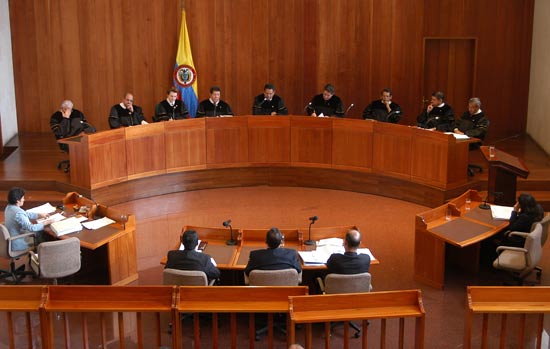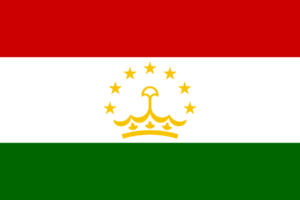Today, the Colombian Commission of Jurists (CCJ) and the International Commission of Jurists (ICJ) call upon the Government to respect the judicial independence of the Constitutional Court and take appropriate measures to guarantee the safety, security, and integrity of Constitutional Court’s justices from threats against them.
The call comes amidst hostile threats from a variety of sources made against members of the Court following its judgment on 21 February 2022 decriminalizing abortion until 24 weeks of gestation.
On 22 February, President Iván Duque Márquez, openly criticized the decision, suggesting that abortion would now become a “common birth control method”. He also questioned the jurisdiction of the Constitutional Court to address abortion regulations. On the same day, Vice-president Marta Lucía Ramírez Blanco, also criticized the Court. Although she said there was a duty to comply with the decision and declared that the Constitutional Court’s decision “legitimized death” and was “disproportionate and inhumane”.
“This is not the first time the Government questions a judicial ruling or the legitimacy of the justices”, said Ana Maria Rodríguez, deputy Director of the Colombian Commission of Jurists. “Attacking the judicial independence has been a regular practice in President Duque’s administration,” added Rodríguez.
President and Vice-President’s declarations may be perceived as casting doubt on the Constitutional Court’s legitimacy and so violate the judicial independence enshrined in articles 228 and 230 of the 1991 Colombian Constitution. Moreover, these comments by the country’s top executive officials are inconsistent with the UN Basic Principles on the Independence of the Judiciary, according to which “the judiciary shall decide matters before them (…) without any restrictions, improper influences, inducements, pressures, threats or interferences, direct or indirect, from any quarter or for any reason”. In addition, “the judiciary (…) shall have exclusive authority to decide whether an issue submitted for its decision is within its competence as defined by law”.
On 4 March 2022, an armed group called “Águilas Negras” (Black Eagles) sent a written threat against the justices who voted in favor of abortion decriminalization to the Constitution Court’s building. In a two-page text, they demanded the justices to change the decision, or they would become “military objectives”.
“The attacks on the Justices are an attack on the rule of law itself”, said Rocío Quintero Martínez, ICJ Legal Adviser.
“As the Constitutional Court has previously mentioned, questioning the credibility of the judicial decisions weakens the democratic system and opens the door to the non-compliance of the decisions,” added Quintero.
A number of civil societies organizations and the Presidents of the other High-level Courts have condemned the threat and demanded the adoption of measures to protect the justices. However, as of this writing, neither the National Government nor the Prosecutor’s Office had made public declarations on the threat.
The CCJ and the ICJ call on the Colombian Government to desist from further interference with the independence of the judiciary and unequivocally execute the decision of the Constitutional Court. The Government should promote a regulation on abortion consistent with the Court’s decision and programs on sexual and reproductive health, as requested by the Constitutional Court.
Finally, the CCJ and the ICJ also recommend that the Colombian Government take effective measures to protect the life and integrity of the Constitutional Court’s justices, as required by international human rights law. When the security of judges is threatened, the authorities must take steps to enable the judiciary to carry out its duties without harassment or intimidation.
Background
On 21 February 2022, the Constitutional Court issued a press release announcing that, through Decision C-055 of 2022, abortions would be a crime only when they are conducted after 24 weeks of a pregnancy. The decision modified the previous jurisprudence of the Court established in 2006. In this regard, in Decision C-355 of 2006, the Constitutional Court established that abortions were permitted in three circumstances: (i) when the pregnancy could threaten the woman’s health or life, (ii) when the fetus would suffer from serious malformations that would eventually result endangering or terminating their life and; (iii) when pregnancy was the result of rape, incest, or artificial insemination without consent.
Contacts:
Ana María Rodríguez, CCJ Deputy Director, email: anarodriguez@coljuristas.org
Rocío Quintero M, ICJ Latin American Legal Adviser, email: rocio.quintero@icj.org





